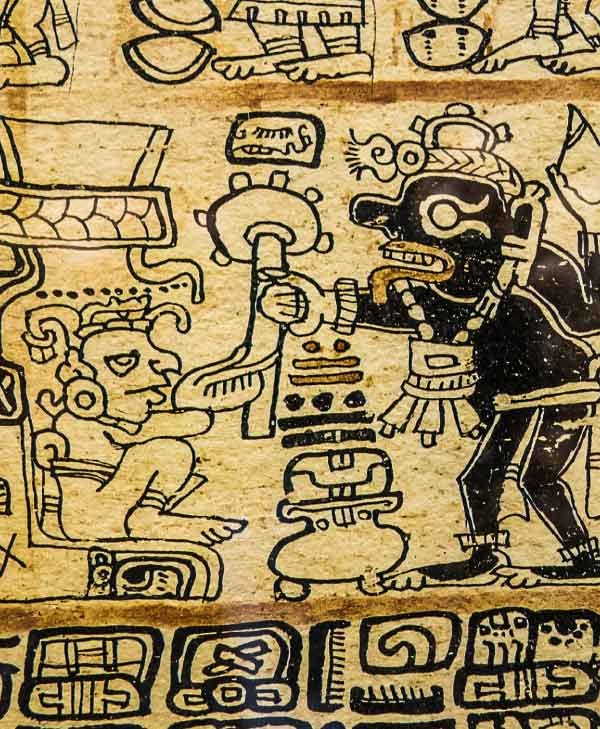This Mythological Moment
What does the Popol Vuh tell us about the LA fires and Elon Musk?
Today I thought I would explore — with minimal premeditation or filter — our mythological moment. At least subliminally, most of us know we’re in a very weird, irrational situation. It feels, in a Jungian sense, archetypal. How do we interpret it?
On a mythological or archetypal level, I recall the ancient Mayan creation myth recounted in Popol Vuh, a foundational sacred text of the K'iche' Maya, written in the 16th century after the Spanish conquest of Guatemala. It was originally an oral tradition, passed down through generations, then written out in the Latin alphabet by an anonymous Maya scribe. The document was rediscovered in the early 18th century by a Dominican friar named Francisco Ximénez, who translated it into Spanish, preserving both the K'iche' text and his translation. )Joao Amorim brilliantly animated this myth at the opening of our documentary, 2012: Time for Change.)
As an aside, we should recall that we lost almost the entire written heritage of the Mayan civilization due to Christian fanaticism — an earlier iteration of what we see rising in power in the U.S. today. Only four original Mayan codices are known to have survived, with many thousands destroyed by Spanish conquistadors and missionaries. With the accumulation of power by the Christian Right, we could easily see another effort to obliterate entire knowledge systems and ways of being that do not mesh with their rigid, anti-humanist, irrational ideology. The destruction of knowledge could be augmented, in our time, by Artificial Intelligence and digital surveillance systems, policed by drones and robots.
We are told in Popol Vuh, that the gods have created and destroyed the world multiple times in their efforts to fashion “true humans.” First, they formed people from mud, but these beings were fragile, unable to speak or hold their form. They dissolved into nothingness. Dissatisfied, the gods created humans from wood; these wooden figures were sturdier and could speak, but they lacked souls, gratitude, and understanding. In punishment, they were destroyed when their own tools — grinding stones, household objects — turned against them. The survivors of that cataclysm became monkeys, who still exist as reminders of the failure of the wood people.
Finally, the gods succeeded to construct “true” humans out of maize dough, a sacred substance for the Maya. They created beings with hearts and minds, capable of worship and communion. Apparently, the first maize people were too advanced for the liking of the Gods. Our distant ancestors were able to see long distances and “remember” the distant future as well as the past. The Gods blew a mist over their eyes to cloud their minds and make them stupid. That is who we are today, according to Mayan myth.
One thing that strikes me from Popol Vuh is this vision of a past form of humanity destroyed by its own tools: Isn’t that what is happening to us now, once again? Is the cycle of cosmic history repeating itself? Through our cleverness, we are destroying ourselves in so many different ways: Microplastics, weapons, CO pollution, but also we are attacking our own capacity to think, reason, and reflect with the Internet, which was supposed to be such a wonderful tool for human liberation and connection.
I keep thinking about the burning of LA and the decimation of Hollywood as a symbolic event in the downfall of the United States of America, as we have known it in our lifetimes. Hollywood represents many things. It is the collective dream factory and industrial / entertainment propaganda arm of U.S. hegemony. The vision of the world shaped by Hollywood film and television has been as crucial for maintaining U.S. power as our military and financial might.
One of the most important auteurs of our time was David Lynch, who just died as a direct result of the LA fires.
Keep reading with a 7-day free trial
Subscribe to Liminal News With Daniel Pinchbeck to keep reading this post and get 7 days of free access to the full post archives.




